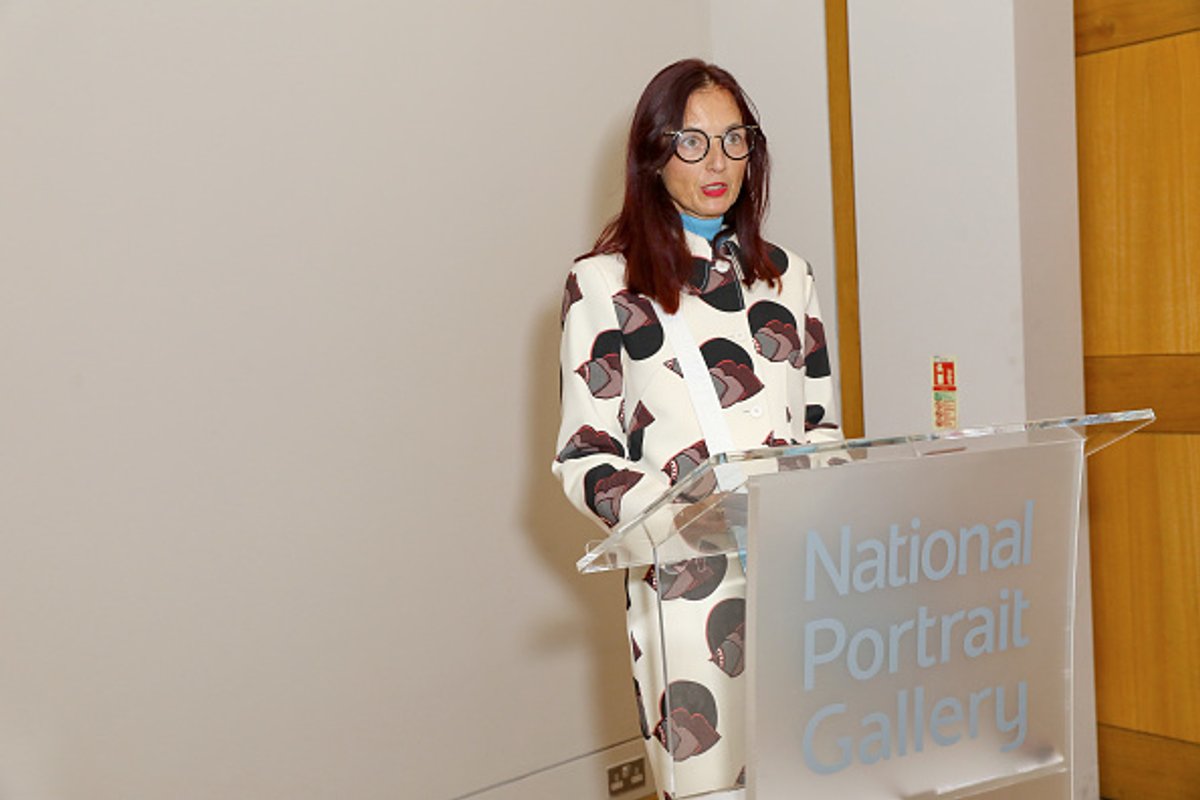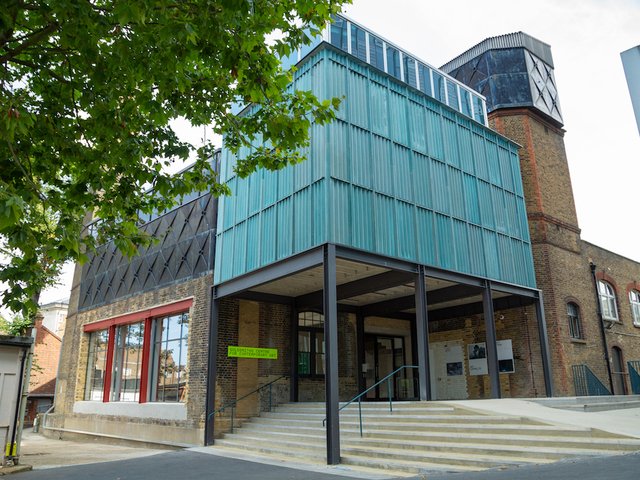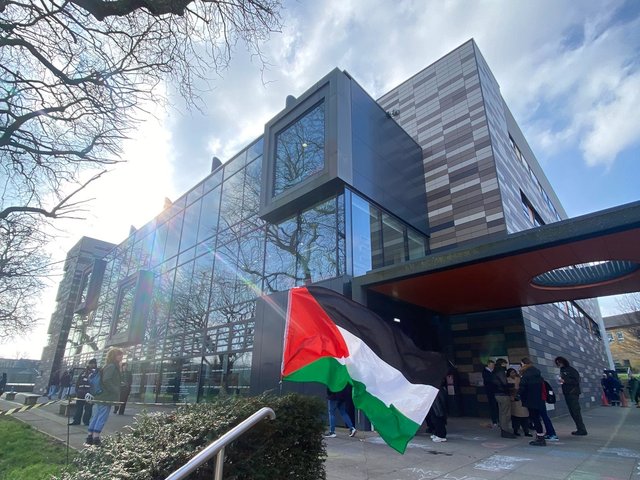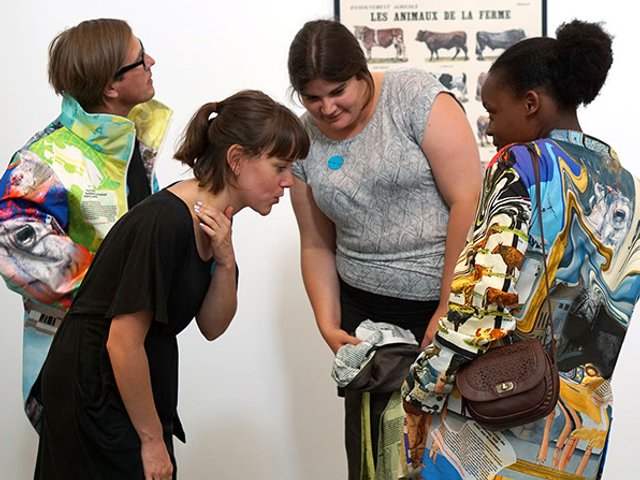Candida Gertler, the co-founder of the Outset Contemporary Art Fund, has resigned from the organisation's board of trustees as well as all her voluntary positions within UK art institutions.
The move comes after more than 1,100 artists and art workers signed an open letter calling on Tate to cut ties with Outset as well as the Zabludowicz Art Trust and Zabludowicz Art Projects. The signatories describe these organisations as “deeply complicit with the Israeli regime” following the outbreak of the war in Gaza last year. Signatories of the letter include the current Turner Prize nominee Jasleen Kaur, as well as past Turner Prize winners Helen Cammock, Lawrence Abu Hamdan and Charlotte Prodger.
Poju and Anita Zabludowicz declined to comment on the accusations in the letter but reiterated a statement made in 2023 in which they said they were “deeply saddened and troubled by the horrific war that is unfolding in Israel and Gaza” and “strongly support a Two-State Solution and peaceful existence that guarantees the rights of Israelis and Palestinians to live and work side by side, in cooperation with the wider Middle East.” Outset did not comment on the letter.
Earlier this year, Goldsmiths Centre for Contemporary Art in south London was closed after students from the protest group Goldsmiths for Palestine occupied the building over its ties with Candida Gertler and her husband Zak. The campaigners alleged that the couple are personal friends of the Israeli prime minister Benjamin Netanyahu and donors to his political campaigns. The Gertlers' names have since been removed from one of the galleries and its donor board.
In her resignation statement Gertler said: “It is with profound reflection and a heavy heart that I announce my resignation from all voluntary positions within UK arts institutions. This decision comes not out of fear, weakness, or defeat, but as an act of principled protest against the alarming rise of antisemitism and the tacit normalisation of hate within physical and online spaces meant to foster creativity and inclusion.”
She referenced the persecution of Jewish people in Nazi Germany and described her resignation as a “tribute to their legacy.” She said: “The failure to confront such hate compromises the very essence of what art stands for—a medium for empathy, exploration, and shared humanity. When art institutions allow prejudice to take root, they betray not only the marginalised communities they exclude but also the artists, supporters, and audiences who trust their integrity.
She added: “My decision to step away from these roles is an effort to spotlight this urgent issue. I cannot, in good conscience, lend my name or efforts to a sector that does not take a resolute stand against hatred and the silencing of a plurality of views.”
In a separate statement, the trustees of Outset UK, said they were “deeply saddened” by her resignation and praised Gertler’s “visionary approach” to arts philanthropy. They added: “Outset will continue to award funding in support of outstanding contemporary art that engages the widest possible audiences. We will always champion open dialogue between artists, institutions and funders.”
Full statement from Candida Gertler:
It is with profound reflection and a heavy heart that I announce my resignation from all voluntary positions within UK arts institutions. This decision comes not out of fear, weakness, or defeat, but as an act of principled protest against the alarming rise of antisemitism and the tacit normalization of hate within physical and online spaces meant to foster creativity and inclusion.
As someone who has dedicated much of my life to supporting contemporary art, championing dialogue, and creating platforms for diverse voices, I can no longer stand silent when institutions, intimidated by violent and aggressive activism that dismisses dialogue, or any kind of communication fails to uphold the foundational values of equality and respect. Recent revelations of vile antisemitic sentiments in these spaces have shocked and appalled me. These are not isolated incidents but part of a broader culture that seeks to marginalize and dehumanize Jews.
This moment compels me to reflect on the fate of countless citizens in the 1930s who were deeply involved in the cultural fabric of European cities, only to face a wave of racism, prejudice, libel, and the inaction of their peers. These individuals—artists, intellectuals, patrons, and leaders—contributed immeasurably to the vibrancy of their communities yet found themselves abandoned in their hour of need. I stand in the shadow of their esteemed footprints, drawing strength from their resilience and courage. My actions today are both a tribute to their legacy and a refusal to repeat the failures of history.
The failure to confront such hate compromises the very essence of what art stands for—a medium for empathy, exploration, and shared humanity. When art institutions allow prejudice to take root, they betray not only the marginalized communities they exclude but also the artists, supporters, and audiences who trust their integrity.
My decision to step away from these roles is an effort to spotlight this urgent issue. I cannot, in good conscience, lend my name or efforts to a sector that does not take a resolute stand against hatred and the silencing of a plurality of views. While hate-filled, often libelous content was published and negotiated in their field of responsibility none of the respective institutions had the courtesy or courage to contact me so that my first source of information were an unreliable press and social media. It was me who had to reach out and ask for more precise information. To remain silent or complicit in such a climate would undermine everything I have worked to achieve.
This is not an abdication of my commitment to art or to cultural support. On the contrary, I intend to dedicate myself to combating antisemitism and all forms of bigotry with renewed vigour. I call on my peers, collaborators, and allies in the artworld to join me in holding our institutions accountable, creating physical and virtual spaces that genuinely uphold diversity, and ensuring that the principles of justice and inclusion are not mere rhetoric but lived realities.
I remain hopeful that together we can confront this darkness and rebuild a cultural landscape where all identities are respected and celebrated. Until that day, I will continue to fight—not from within these structures, but alongside those who demand better.
Thank you for your understanding. This is not a goodbye to art but a reimagining of how it can be a force for true societal change. To those who regard this as a victory I urge you to ask yourselves what this actually has achieved for the people you wish to help.
Yours sincerely,
Candida Gertler OBE
Founder, Outset Contemporary Art Fund





